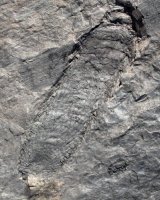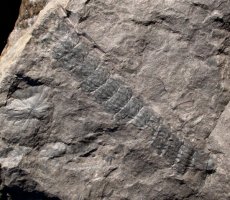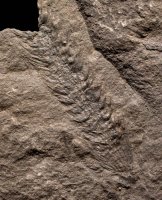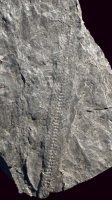Spore cones of horsetail trees
These spore cones are easy to recognize because of the compactness and the articulation. The scale-like leaflets (bracts) of the cones are, like the other leaves of horsetails, arranged in whorls. The distances of the nodes however are much smaller than those in normal branches with leaves.
The most striking species is
Macrostachya infundibuliformis. This cone
is much larger and thicker than the other cones.
The smaller species belong to the genus Calamostachys.
Possibly also species of the genus Palaeostachya occur.
Calamostachys. With some difficulty it is possible
to distinguish a couple of species.
Calamostachys tuberculata. Bracts
are spreading from the axis and bent upwards. In most cases they reach no
further than the next node. The length of the cones is between 6 and 12 cm
and the distance of two nodes is generally 5 mm or more. This cone is associated
with Annularia stellata.
Calamostachys germanica. Bracts are
widely spreading and twice as long as the distance of two nodes.
Calamostachys striata. A small, long,
narrow cone with appressed bracts. The distance of two nodes is very small
and the bracts are about three times as long as this distance.
Click on the photos below to proceed.



